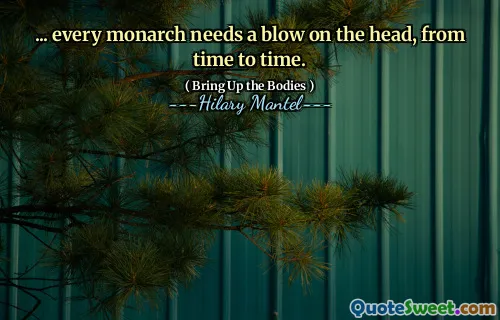Hilary Mantel was a celebrated British author, best known for her historical novels, particularly the Thomas Cromwell trilogy, which includes "Wolf Hall," "Bring Up the Bodies," and "The Mirror and the Light." Her work is praised for its intricate characterizations and rich detail, immersing readers in the complex politics of Tudor England. Mantel's narratives often explore the nuances of power, identity, and morality, revealing the human dimensions behind historical figures. In addition to her fiction, Mantel was an accomplished essayist and memoirist, contributing to various publications and providing insights into her thoughts on literature, politics, and her own life experiences. Her writing style combined sharp observation with lyrical prose, making her a distinctive voice in contemporary literature. Throughout her career, Mantel received numerous accolades, including two Booker Prizes for her works. Her influence extended beyond literature, inspiring discussions on the craft of writing and the importance of historical fiction in understanding the present. Mantel’s storytelling skill and mastery of language earned her a lasting place in literary history.
Hilary Mantel was an acclaimed British novelist best known for her historical fiction, particularly her trilogy about Thomas Cromwell. Her novels, rich in detail and character development, dive into the complexities of Tudor England.
Beyond her novels, Mantel was a keen essayist and memoirist, offering thoughtful reflections on a range of topics including literature and her personal life. Her unique writing style and sharp insights made her an influential figure in contemporary literature.
Throughout her distinguished career, Mantel won multiple awards, including two Booker Prizes, solidifying her impact on the literary world and emphasizing the significance of historical narratives in contemporary discourse.
Loading...
More »
Today Birthdays
1955 -
Max Lucado
1946 -
John Piper
1842 -
William James
1907 -
Abraham Joshua Heschel
1887 -
Aldo Leopold
1755 -
Alexander Hamilton
1976 -
Alethea Kontis
1971 -
Mary J. Blige
1825 -
Bayard Taylor
1943 -
Jim Hightower
1885 -
Alice Paul
1923 -
Carroll Shelby
1928 -
David L. Wolper
1954 -
Kailash Satyarthi
1972 -
Amanda Peet
1946 -
Naomi Judd
1970 -
Malcolm D. Lee
1955 -
Christian Marclay
1973 -
Rahul Dravid
1987 -
Jamie Vardy
1942 -
Clarence Clemons
1992 -
Fatima Sana Shaikh
1948 -
Larry Harvey
1930 -
Rod Taylor
